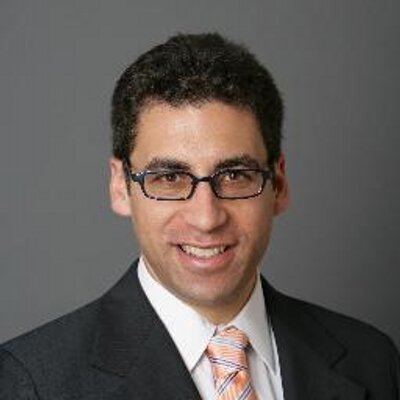Q&A: Getting To Know Mr. Jacob Doft, Business Management Elective

Mr. Jacob Doft. Image credit: Mr. Jacob Doft.
Ilan Puterman: Tell us about yourself.
Mr. Jacob Doft: I am the CEO of a money management firm called Highline Capital. I am an alumnus of Ramaz class of 1987. My children are either all alumni or students at Ramaz, so I feel very much part of our Ramaz community. I also have very long standing close friendships with many of the teachers some of whom taught me in high school.
IP: Why did you choose to become a business teacher at Ramaz?
JD: Dr. Jucovy shared with me that Ramaz was starting a business elective course and he was talking about the curriculum for it. I disagreed with the focus of the elective so I protested. I told him that I want a class that’s about disruption and innovation and how business works now and in the future, as a result of new technologies and changes in behavior. He took my comments into consideration and convinced me to teach this elective.
IP: What is your approach to teaching students?
JD: I don’t believe in lecturing. I think that my job is to get the students to figure stuff out on their own. I may lead a conversation, but my goal is always to speak in the minority, and to let the students figure stuff out right there in the class. From my limited experience this year, I believe that this teaching method is a good way of getting students to figure stuff out on their own and to enable them to learn additional things in the future. So, my style is just to facilitate a discovery process in the classroom. The great part about that is it doesn’t require homework. It doesn’t require any preparation in advance, and it doesn’t require any testing. I’ve noticed that almost every single person in the class is engaged and interested in the conversation.
IP: What is your greatest challenge when teaching?
JD: I teach my class before lunchtime, and I have real sympathy for the fact that the students are tired and hungry; they’ve sat in five classes in a row and are probably mentally fried. So, I try to bring a lot of energy and sometimes even bring food to the classroom. I think teaching the class before lunchtime is definitely a challenge, but it can be combated with energy and enthusiasm.
IP: Why do you believe it is essential for high school students to gain an immersive understanding of business?
JD: It’s important to understand how the world works, because we’re interacting with all these businesses. It’s helpful to consider how these organizations operate, and how they can operate better over time. If they don’t operate better, you can see how they might lose function and get replaced. That’s what I’m trying to get people to think. We teach all the enabling technologies, and then piece them together to see how the technologies construct new business models today. Students will gain the ability to tangibly understand how enabling technologies might contribute to society. Students will learn how electricity enables a new generation of automobiles and how broadband enables certain kinds of products to work wirelessly.
IP: As a Ramaz alumni, how did Ramaz shape your personality and impact your success?
JD: I think everyone would agree that it’s the friends you make as a student; that’s the best thing that you keep for the rest of your life. I see that for my children and I certainly benefited from it myself. I’ve always taken Ramaz’s mission statement seriously and there’s a lot of ways to interpret the word menschlichkeit. My interpretation is helping others and lifting other people up. I find that to be a very satisfying part of life.


